The Málaga flamenco singer born in Granada, just brought out his second recording, “Sentidos del Alma”, with the collaboration of artists such as Miguel Poveda, Makarines and José Luis Montón.
Silvia Cruz Lapeña
It’s not easy for a back-up flamenco singer to receive an “ole!” in Barcelona, much less an ovation. But that’s precisely what Alfredo Tejada managed at the Festival Grec where he sang for Eva Yerbabuena in her latest show, Cuentos de Azúcar. Today he’s not speaking as a secondary artist, today Tejada is talking about his most recent recording, Sentidos del Alma, a very different sort of work from the former one, Directo, in which he demonstrated what the Barcelona audience was able to appreciate: tremendous vocal qualities, a beautiful vocal placement and knowledge of the repertoire. “This record is very different from the previous record. Mostly, I don’t want to sing in summer festivals all my life. The time has come to invest in my music” says a man who just turned 40 and is in top form.
Tejada’s story is one of constant duality. He was born in Málaga, but raised in Granada. His mother, a flamenco singer, was the daughter of a gypsy, and his father, a non-gypsy bassist of pop and jazz music, which is why his early years sound more like Billie Holiday, Nina Simone and Depeche Mode than Manolo Caracol. His conservatory studies, thanks to which he learned to read music, play the trombone, the bass and the piano cause pop culture and highbrow to be mixed in his discourse. That mixture is evident in the people who accompany him on this new work, just as likely to be nurtured by the innate charm of Enrique Pantoja, as the rigorous creative capacity of young pianist Mélodie Gimard.
Verses and poets
A personal loss abruptly ended Tejada’s childhood with a single blow: “When my mother passed away, I had to make my own way, which is why I chose to accept a job at the Granada City Hall working in urban maintenance” he says about his early adulthood when he became fully aware of flamenco. For him, having accompanied his mother on guitar, it became a necessity to become familiar with the singing of Camarón de la Isla in order to dare try his hand at singing: “It was something different, it made a big impression on me and it was what encouraged me to leave the guitar and other instruments in order to sing at flamenco associations with friends on the weekend. Until I realized that was what I wanted to do, that I didn’t want to be a pencil-pusher and I left everything behind in order to sing”.
That decision was made twenty years ago. Along the way, he became a composer and producer, which led him to write lyrics for singers such as José El Francés. That concern for the message and the words can be seen in Sentidos del Alma, where he wrote several verses, and in which he included the words of poets such as Horacio Garcia Jiménez and Emilio Florido.
Mario Maya, stage baptism
“One day I went into a cafeteria in Granada and met Juan Habichuela. He started playing his guitar, and told me to sing something for him, so I got into fandangos de Huelva. Mario Maya was there, asked me for my telephone number and a few days later he called me to work with him”. He tells the story, and his voice is animated, he considers that the moment marks the beginning of his professional career. His debut was at the Carlos V palace in Granada with Diálogo del Amargo. “I cried a lot, I fussed and worried, I was moved because Mario passed me information about recordings and I spent weeks soaking it all up and studying”.
From that point on, he never stopped working, but there are high points he doesn’t want to forget.
One of them came almost without seeking it: the Lámpara Minera of the Festival de Cante de La Unión in 2017. “That was my wife’s fault, she’s very heavy-going” he says laughing, while assuring us he is against contests because they limit creativity. “I don’t regret it, although it seems to work against art because you don’t really express who you are, but I decided to go for it, and it worked out well”. His opinion differs little from that of other contestants who won prizes at this contest. “Work-wise, they don’t help you nor do anything to make the Lámpara shine more brightly, it just opens media doors a little”.
Social conscience
In Sentidos del Alma there are two songs dedicated to Enrique Morente, a requiem and some fandangos. “We were very good friends, he was a reachable person and I felt the need to sing of him, although not copying, but rather from my own point of view. ‘Genio de Genios’ I sang crying”. From him, as from Maya, he learned that flamenco was always music that sang of the suffering of the people. “I always think of that, and believe you cannot forget that many of our songs are born of everyday things and problems, they come from life itself”. Which is why I believe that flamenco people, in addition to singing, must tell a story and be committed”. And that’s the reason the last cut on the record, which is petenera, contains verses written by Ahmad Al Katib, dedicated to the children who now die crossing the sea.
As far as the difference between singing solo or for dance, Tejada doesn’t see much difference: “As far as I’m concerned, it’s the same responsibility, because when I go on with Yerbabuena or La Lupi, I’m giving 200%” says the man preparing to take Sentidos del Alma to various venues while he continues to tour with the live performance of his first record called Tres Formas y un Concepto. “In Sentidos del Alma” there are important collaborations such as that of Miguel Poveda, José Luis Montón and Makarines, and it’s impossible to get them all on stage, although I always take at least one guest artist”.
With regard to how he faces the audience, there’s something today’s Tejada doesn’t see in the same manner as when he began singing twenty years ago: “When I was younger, I was less aware, but respect for the stage has grown with the years. I’m not less afraid, quite the contrary. Now I know what’s at stake”.
Videoclip – Genio de los genios
Cd – buy online
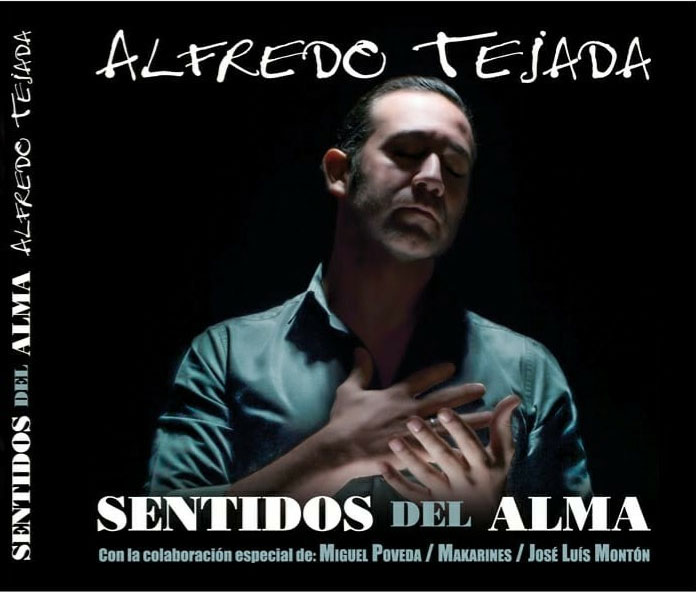



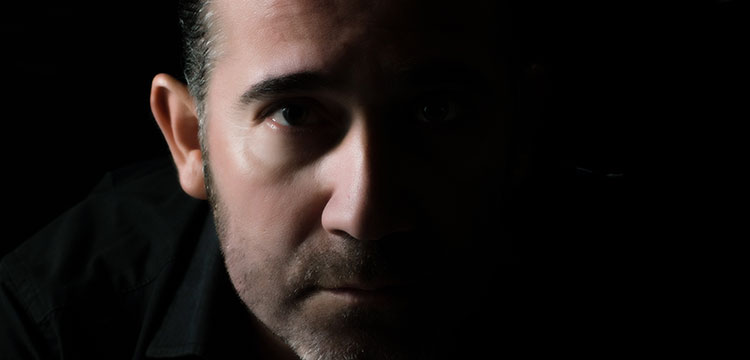




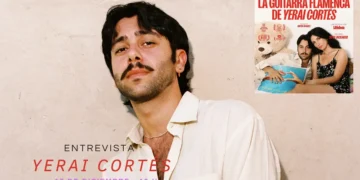
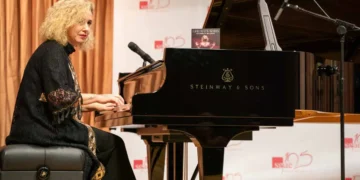
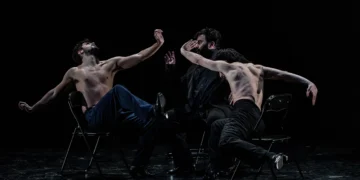


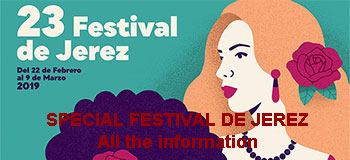
You must be logged in to post a comment.